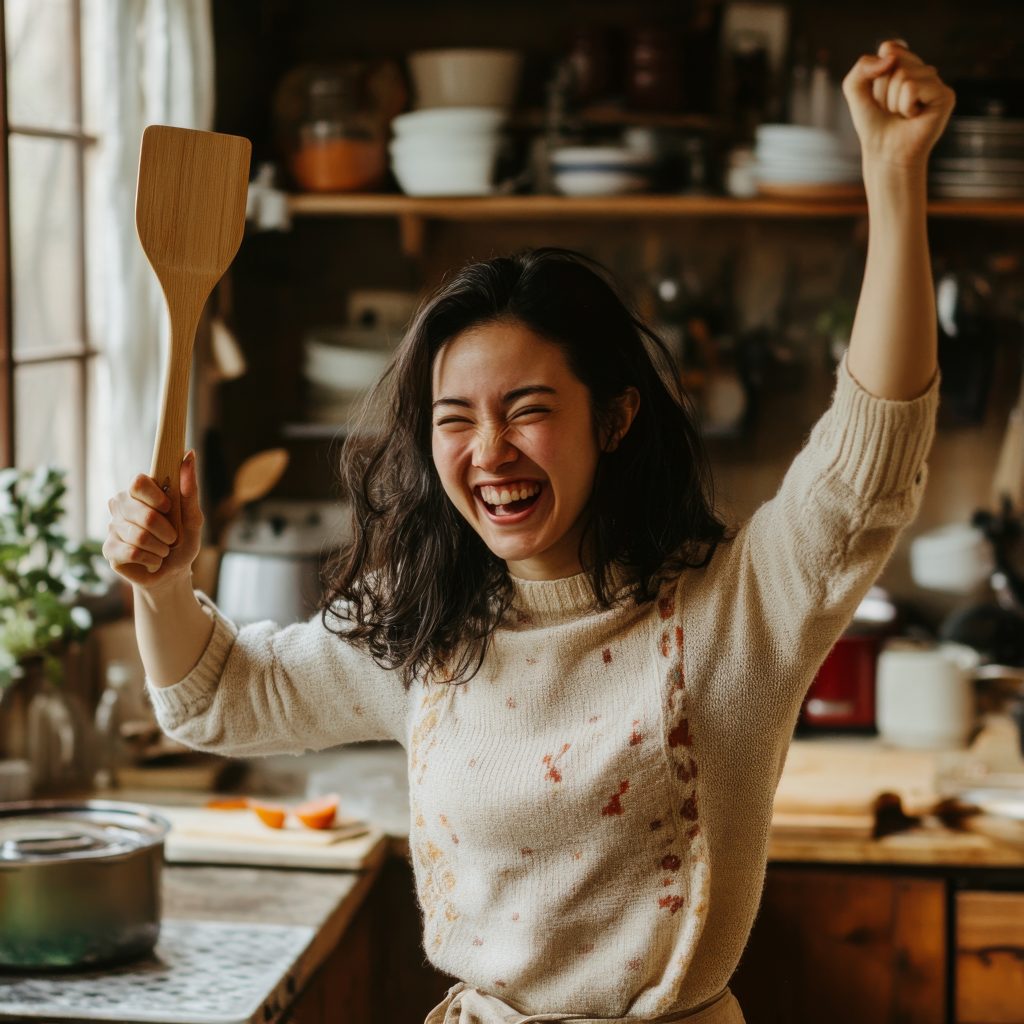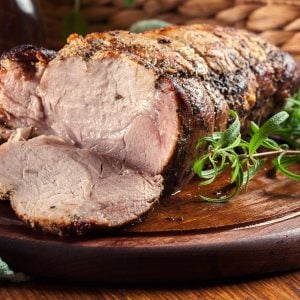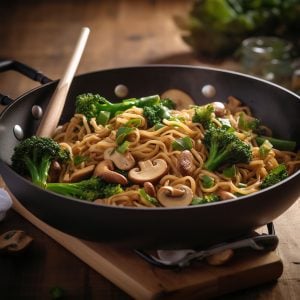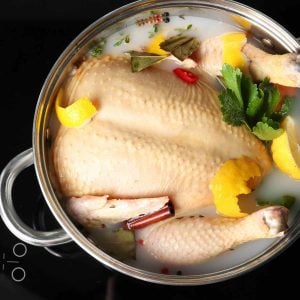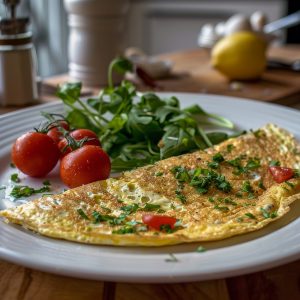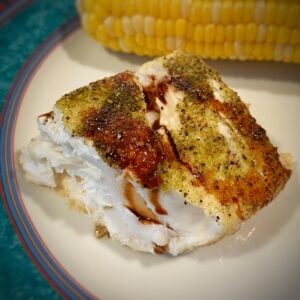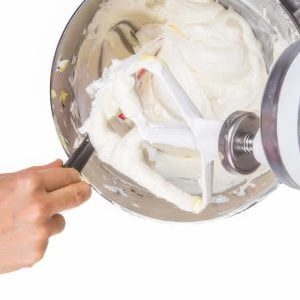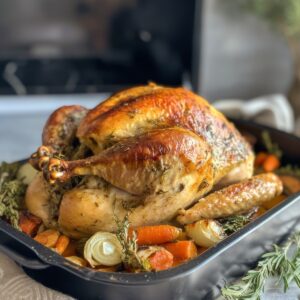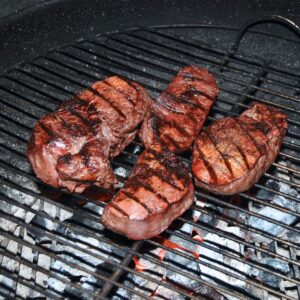From Nervous to Natural: How to Actually Feel Confident Cooking at Home
Let’s face it—cooking can be intimidating. One minute you’re confidently chopping onions like a Food Network star; the next, your smoke alarm gives you a standing ovation. But here’s the secret no one tells you: every great cook was once a total mess in the kitchen.
Finding your confidence at the stove isn’t about fancy gadgets or memorizing French terms (though saying mise en place does make you sound cool). It’s about showing up, embracing the mess, and learning that even burnt toast is a crunchy learning opportunity.
In this article, we’ll explore practical ways to build kitchen confidence, whether you’re a total newbie or a takeout regular looking to upgrade. We’ll explore small wins—like mastering one go-to recipe—and how forgiving yourself for culinary missteps (yes, even that salt bomb of a soup) is key.
You’ll learn how to set up a kitchen that works for you, why cooking without a recipe can be a breakthrough, and how to fake confidence until your taste buds believe it.
So grab a spatula, lower your expectations (just a smidge), and turn that kitchen intimidation into delicious empowerment. Because the only thing standing between you and a great meal… is just a little confidence.
Recipe to Building Your Kitchen Confidence
The Myth of the “Natural Cook”
Some people act like they were born with a whisk in one hand and a cast iron skillet in the other, but the truth is, no one magically knows how to cook. Confidence in the kitchen doesn’t come from talent—it comes from trial and error, burnt rice, and a few “what-was-I-thinking” meals.
Cooking is a skill, not a personality trait. Every confident cook you admire learned by messing up repeatedly. When you stop chasing perfection and start chasing progress, everything changes.
You’ll stop fearing mistakes and start seeing them as part of the process. So ditch the myth of the natural cook. Real confidence starts when you accept that learning is messy—and that’s perfectly delicious.
Celebrate Small Wins
Confidence doesn’t come from cooking a five-course meal on your first try—it comes from nailing the little things. Maybe you finally didn’t overcook the chicken. Maybe you chopped an onion without crying (too much).
These small victories matter. Celebrate them! They prove you’re learning, growing, and showing up. Start with one go-to recipe and make it until it feels easy.
That feeling? That’s confidence sneaking in. Share your wins with a friend or snap a photo—you’ve earned it.
Cooking isn’t a single test you pass or fail. It’s a series of mini triumphs that add up. So the next time your pasta isn’t clumpy or your eggs aren’t rubbery, pat yourself on the back. You’re doing great.
Your Kitchen, Your Rules
You don’t need a chef’s kitchen or marble countertops to cook confidently. What you do need is a space that works for you.
Start by organizing tools where you can reach them—keep knives sharp, spices visible, and your favorite pan handy. Declutter anything that makes you feel overwhelmed.
Don’t like that avocado peeler you’ve never used? Donate it. Prefer cooking in socks with music on? Do it. Your kitchen should feel like your turf, not a test.
Arrange things so you move smoothly, not frantically. Create habits and shortcuts that make sense to you. You’ll naturally feel more capable when your kitchen feels friendly instead of chaotic. And remember: if it’s your kitchen, then your rules rule.
Comparison Is the Thief of Joy (and Appetite)
Instagram lies. Food blogs use tweezers. And that friend who “just throws things together” probably watched six YouTube videos first.
Comparing your real-life meals to someone else’s curated perfection will crush your confidence fast. Your stew may not photograph well, but if it tastes amazing, you win.
Cooking is personal. It’s not a contest, and you’re not on “Top Chef.” Stay in your lane, cook what you enjoy, and remember: even imperfect food feeds people.
Celebrate your progress, not someone else’s polish. You’re building skills, not followers. Confidence grows when you focus on your own plate—not someone else’s highlight reel. So scroll less, stir more, and be proud of what’s cooking in your kitchen.
The Power of Mise en Place
Mise en place sounds fancy, but it’s just a fancy way of saying “get your stuff together before you start cooking.” And it works like magic. When you prep your ingredients—chop your veggies, measure your spices, read the recipe before the pan gets hot—you cut stress in half.
You’re no longer scrambling for garlic while your onions burn. You move with purpose. Confidence loves preparation, and mise en place gives it a place to grow.
Even if you’re just making a grilled cheese, laying out your ingredients makes the process smoother. Think of it like setting up for success.
Pro tip: clean as you go while you’re at it. That way, your kitchen—and your brain—stay clear.
Permission to Mess Up
Repeat after me: “It’s okay to mess up.” Say it louder if your last meal smoked up the kitchen. Mistakes happen—to everyone.
Even seasoned chefs have stories of scorched sauces and sunken cakes. The trick is to see mistakes as experiments, not failures. Maybe your cookies spread into one giant blob. Cool! Now you’ve made a cookie pizza.
Laugh, learn, and move on. Every disaster teaches you what not to do, how to fix it next time, or that you should’ve trusted your gut. When you stop treating mistakes like proof you can’t cook, you’ll start treating them like stepping stones. Give yourself permission to flop occasionally. It’s not a sign you’re failing. It’s a sign you’re trying.
Cook Without a Recipe (Eventually)
Recipes are great training wheels, but confidence grows when you start trusting your instincts. Once you’ve made a dish a few times, ditch the measuring cups and experiment.
Add more garlic if you love it. Swap basil for cilantro if that’s what you’ve got. Taste as you go and adjust. That’s real cooking—and it’s surprisingly freeing.
At first, improvising might feel risky, but it’s how you learn what flavors you love and how ingredients behave. Cooking becomes less about strict instructions and more about creative choices.
Start small—tweak a salad dressing, freestyle a smoothie. Before long, you’ll be tossing things into a pan like a pro. No recipe? No panic. You’ve got this.
Choose Recipes That Teach
Some recipes just feed you. Others teach you. Look for the second kind.
These recipes build skills you can use again and again—like how to sear, roast, sauté, or balance flavors. A roast chicken isn’t just dinner; it’s a masterclass in timing, seasoning, and temperature.
A simple vinaigrette? A lesson in ratios. Pick recipes that challenge you just enough to keep things interesting, but not so much you need a kitchen degree to pull them off.
Each time you cook, you should walk away knowing something. And the more you know, the more confident you become. So you can find those skill-building recipes and put them to work. You’re not just making dinner—you’re making a better cook.
Build a “Kitchen Wins” Journal
You know what builds confidence fast? Evidence. Keep track of your cooking victories in a notebook, phone app, or even a sticky-note wall of fame.
Jot down what worked, what you loved, and what you’d do differently. Snap a photo of that golden-brown grilled cheese or the soup that made you proud.
Your “Kitchen Wins” journal reminds you that you can do this, especially when your latest attempt feels a little meh. It becomes your personal cooking timeline—a growing archive of progress.
You’ll see how far you’ve come, which flavors you favor, and what recipes are worth repeating. On days when doubt creeps in, flip back through your wins. Confidence loves a good highlight reel.
Ask for Help (and Taste Everything)
Confident cooks aren’t know-it-alls—they’re question-askers and taste-testers. If you don’t know how to do something, ask. Search a video, call a friend, or leave a comment on a recipe.
No shame—just curiosity. And don’t wait until the end to taste your food. Taste early. Taste often. That’s how you catch a bland sauce or over-salted soup before it’s too late.
Adjusting as you go is a power move. It shows you’re in control. Every question you ask and every spoonful you sample sharpens your instincts.
You don’t have to know everything—you just have to care enough to learn. Confidence isn’t about perfection. It’s about engagement. So stay curious, keep tasting, and never be afraid to ask.
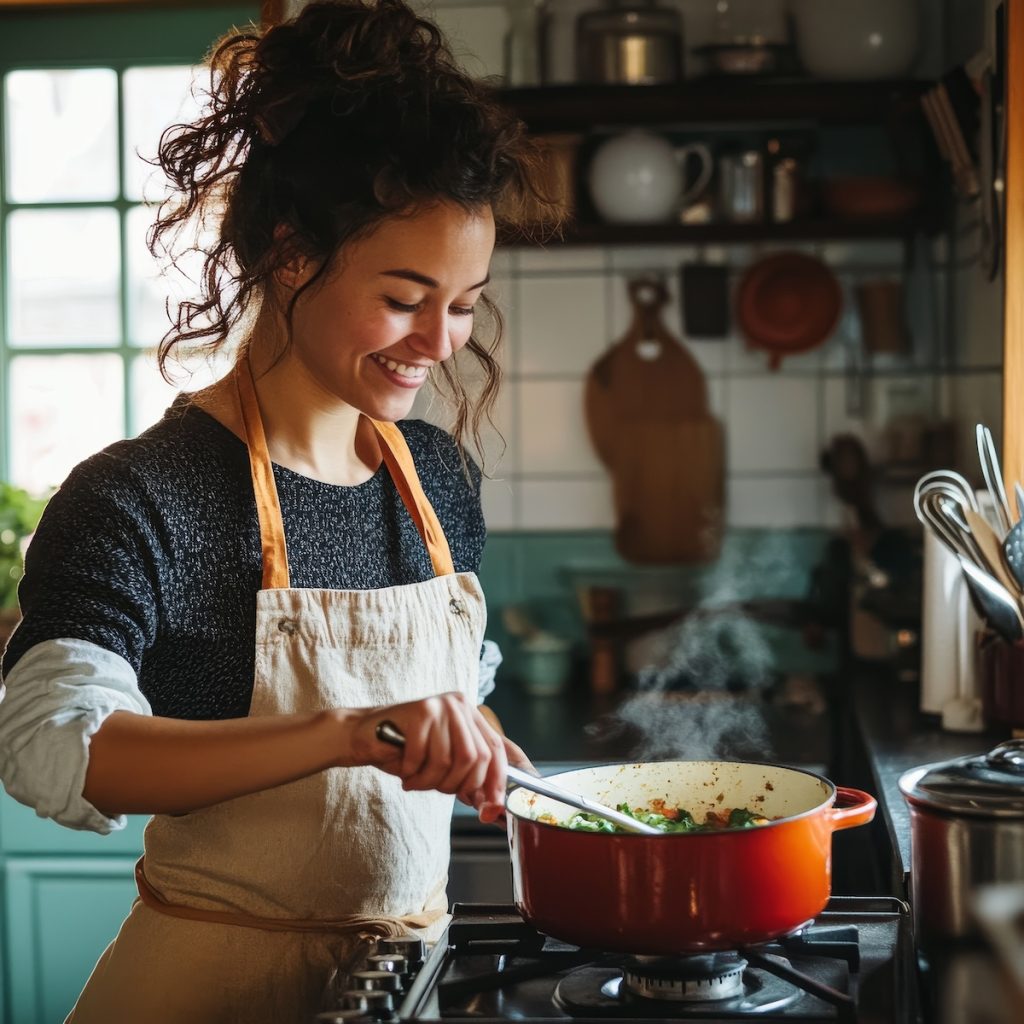
Stirring Up Confidence: Mindset, Mistakes & Magic
Develop Mindset
- Embrace a growth mindset: “I can learn this.”
- Let go of perfectionism.
- Treat cooking like a creative experiment, not a test.
The Emotional Side of Cooking
- Cooking can boost self-esteem and independence.
- Cooking is a form of self-care or stress relief.
- Find joy and presence in the process, not just the result.
Build Routines That Reinforce Confidence
- Have a “go-to” recipe for bad days.
- Weekly meal plan to reduce decision fatigue.
- Create rituals: lighting a candle, playing music, or brewing tea while you cook.
Loose the Pressure
- Cook simple meals often instead of complicated ones occasionally.
- Low-stakes practice, like making eggs or toast intentionally.
- Volunteering to cook for someone supportive to grow confidence with feedback.
Create a Support System
- Join online cooking communities or following relatable home cooks.
- Ask friends or family for their favorite simple recipes.
- Share food (and mistakes!) with people who won’t judge you.
Use Tools That Make You Feel Empowered
- Customize your kitchen space (lighting, music, layout).
- Learn how to sharpen a knife or use one tool really well.
- Inves in one thing that makes you excited to cook (like a cast iron skillet or a cute apron).
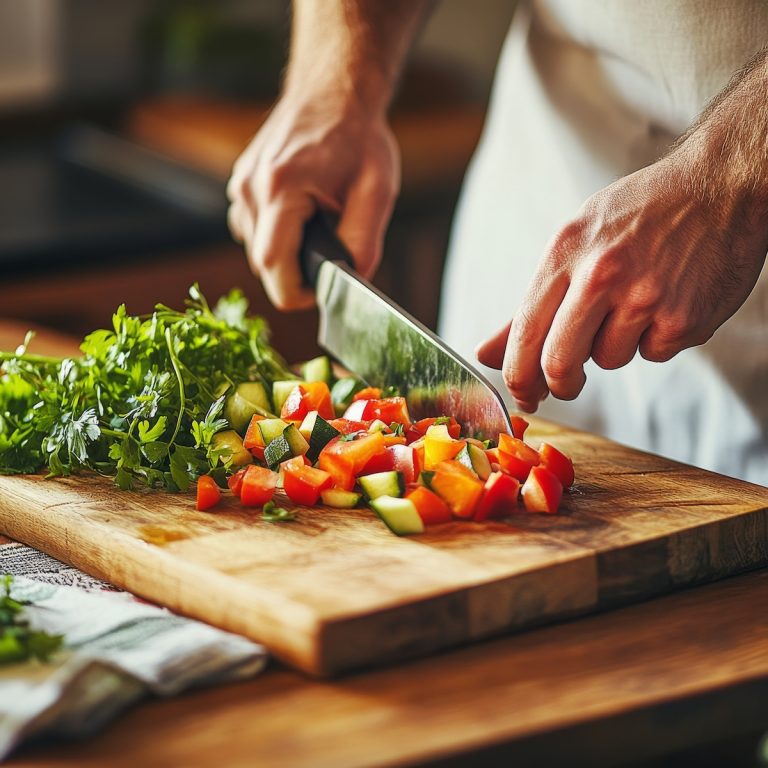
Six Myths That Are Not True
1. Some people are just naturally good cooks.
The truth: No one is born knowing how to sear a steak or make risotto. Confident cooks are made, not born—through practice, patience, and a few kitchen disasters.
2. You have to follow recipes exactly.
The truth: Recipes are guides, not sacred scrolls. Confident cooks tweak, taste, and adapt based on what they like and what they have. Improvisation is part of the fun.
3. If you mess up, you’re not a good cook.
The truth: Mistakes are how you learn. Burnt dishes, underseasoned soup, and overcooked eggs are normal. Each “oops” teaches you something valuable.
4. You need fancy equipment to cook well.
The truth: Great meals come from basic tools and good techniques, not $300 blenders. Confidence comes from knowing how to use what you’ve got.
5. Cooking should feel easy if you’re doing it right.
The truth is that cooking can be joyful and challenging. Feeling unsure or working through trial and error isn’t failure—it’s growth.
6. You have to cook everything from scratch to be confident.
The truth: Using shortcuts (frozen veggies, store-bought dough, etc.) doesn’t make you less legit. Confidence is about making choices that work for you.

